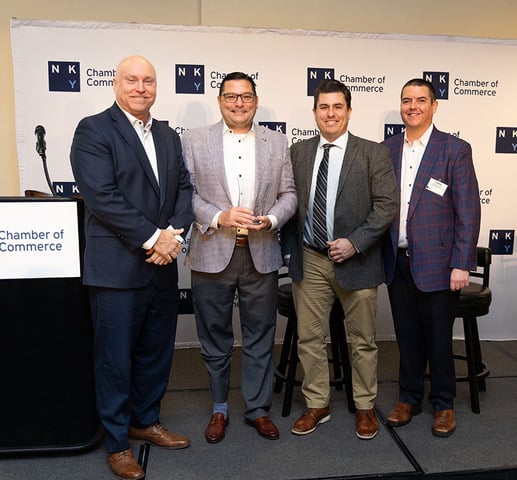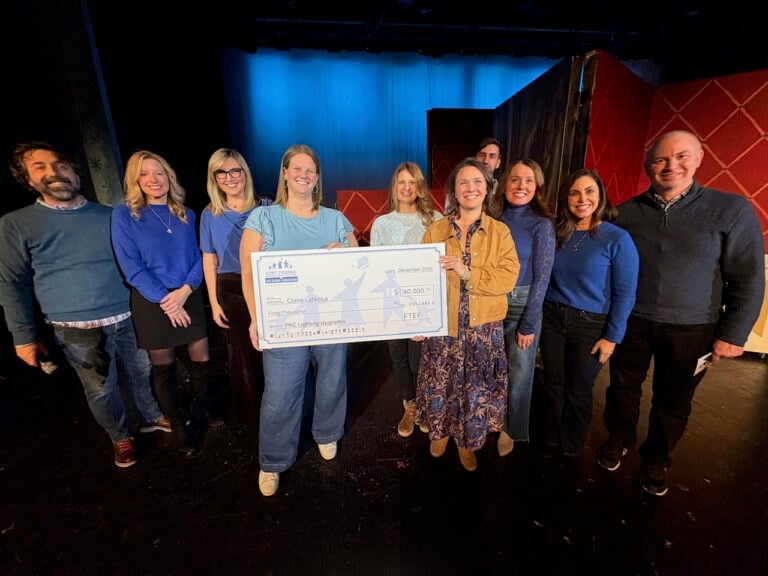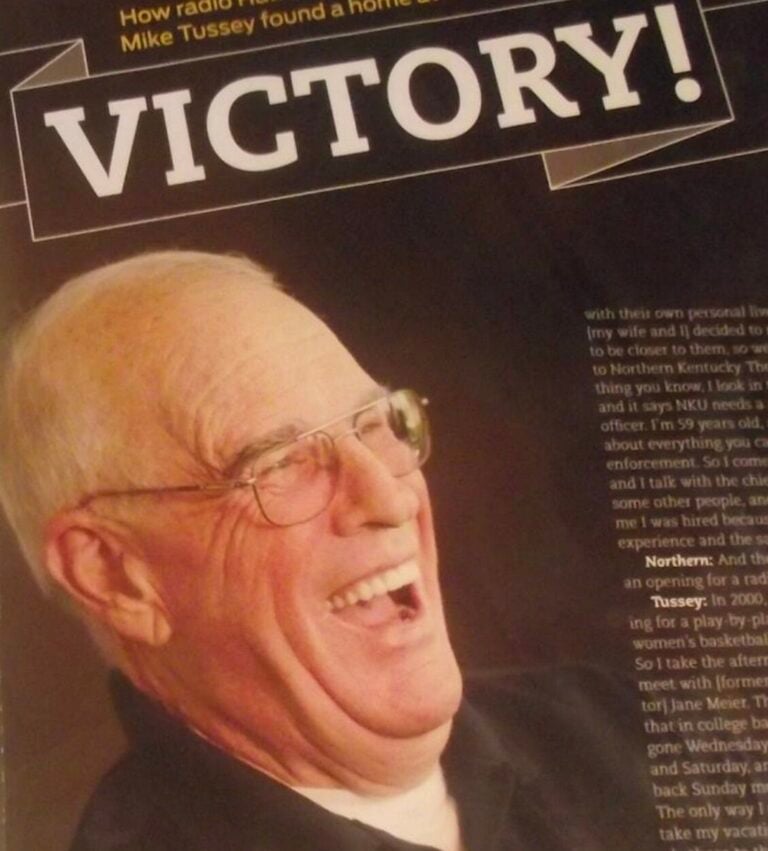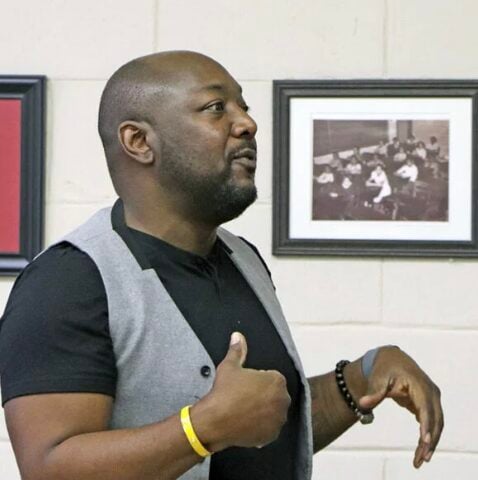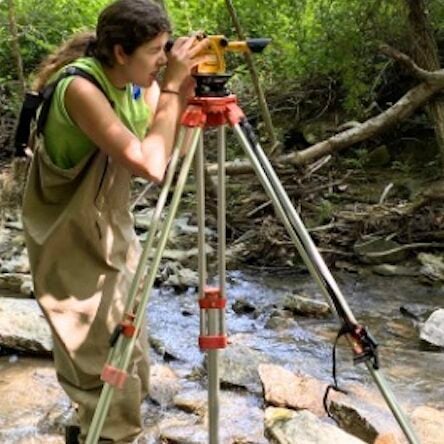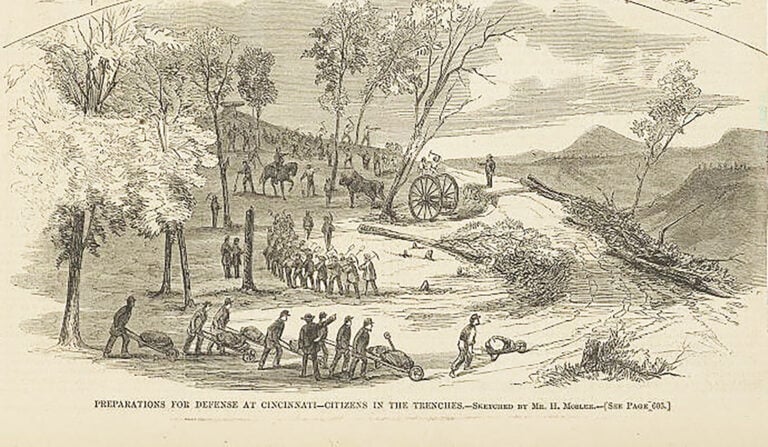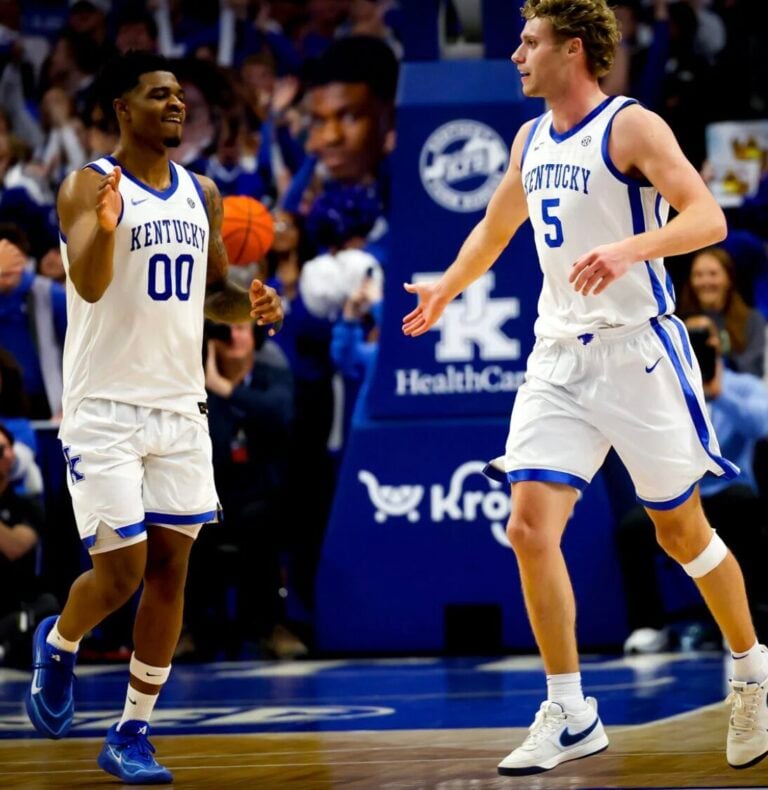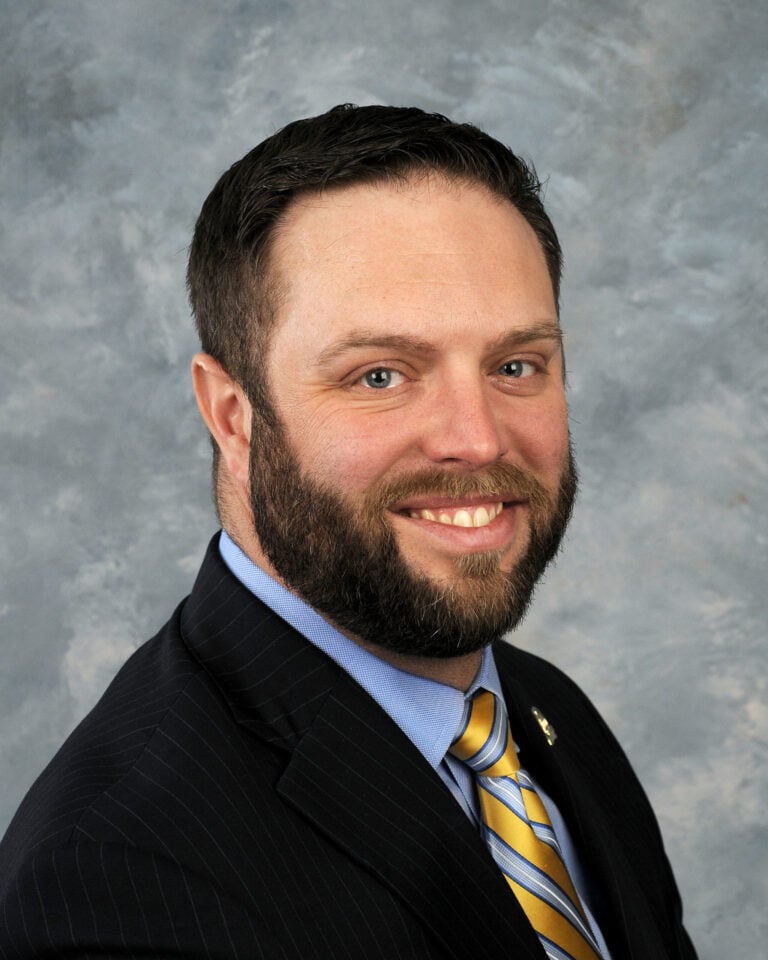Staff report
Ben Dusing and John Gardner returned for a respite from war-torn Ukraine from humanitarian work that was their most dangerous ever.
On their last trip, they were working primarily in Kherson, which was under constant artillery fire, and undertook physically- and mentally-exhausting rescue missions of the injured and most vulnerable Ukrainian citizens suffering from the Russian onslaught.
They will be returning to the hot spot shortly, this time to lead a Kyiv-based nonprofit, Ukrainian Patriot. Dusing will become the nonprofit’s Director of Humanitarian Operations for its work country-wide, and Gardner will assume responsibilities as field coordinator. They will set up operations in Kherson, where so much destruction has occurred, and will have stable funding to expand their humanitarian efforts.

Ukrainian Patriot was founded by Lana Niland at the start of Russia’s full-scale invasion of the Ukraine in February, 2022. The volunteer work that the two Northern Kentuckians were doing in country caught her notice and she paid them a visit in Kherson to see it — and learn about all she had heard first-hand.
Dusing said the meeting was nothing less than a miracle.
“I’ll never forget meeting Lana,” Dusing says. “I liked her right away. Some of the NGO-types (Non-Government Organization) from Kyiv don’t like to come to places like Kherson and seem a little out of place, but Lana was right at home and fit right in. I met her at my friend Alyona’s soup kitchen and she rolled right up in a pickup truck wearing Bon Jovi jeans. I didn’t expect her to be so relatable, I think.”
As it turned out, Niland and Dusing had a lot in common that they didn’t have in common with many others.
“We both have a private-sector background, are humanitarians in our 40s, speak Russian, and have put substantial amounts of our own resources into helping the people of Ukraine. All of those things are somewhat unique in humanitarian circles,” he said. “I was impressed — especially by the clarity of her humanitarian vision, which uniquely aligned with mine.”
The timing couldn’t have been more propitious, as funding was a constant concern. Dusing’s charitable partner, New Mexico attorney William J. Wagner, shared costs with Dusing for the vehicles they purchased — including two ambulances — which were invaluable to their rescue efforts. The vehicles were the primary reason Dusing and Garner found themselves in the thick of the conflict. And why they were able to transport food to starving civilians in the hardest-hit military zones and rescue elderly and severely injured citizens from dangerous conditions.
Expenses soared as a result, too, and funding to sustain their efforts was always on their minds. The vehicles need constant maintenance and attention.

Waggoner, whom Dusing met on his first trip to the Ukrainian border helping refugees, will join Ukrainian Patriot’s USA-based board of directors. He has returned to the U.S. and continues his support of Ukrainian humanitarian efforts.
Greatly-increased expense wasn’t the only problem. There was, too, the newly-expanded timeline of the war. The conflict was in its final stage – the liberation of the southern territories still occupied by Russia – but the newly-launched Ukrainian counteroffensive had by then begun and it’s clear that liberating the territories will take a while.
Another complication was that Dusing could theoretically be confronted with the difficult choice of continuing his humanitarian volunteerism or returning to the practice of law. Dusing had already been temporarily suspended for 18 months and a 3-year suspension recommended by the Trial Commissioner appointed by the Kentucky Bar Association is under review by the Kentucky’s Board of Bar Governors, who have complete discretion to accept, reject, or modify the recommendation of the Trial Commissioner. If Dusing were returned to the practice of law before the conflict ended, there would be considerable pressure for him to return to his law career.
He didn’t want to do that – at least not quite yet.
“We really needed something to happen,” says Dusing, reflecting on the existential moment. “The people in Kherson really needed us to play the role we were playing and we weren’t going to be able to play it unless we found some support.”
As it turned out, support found them.
Niland jumped in Dusing’s ambulance on that fateful meeting day and they drove around Kherson. Dusing explained his vision for humanitarian work he wanted to do, the paucity of the resources for the local population, and the uniqueness of the humanitarian challenges there.
“Partnering on anything was an academic conversation unless she could help us find support for our existing operation,” says Dusing. “Lana understood very clearly that it was critical that, at the very least, John and I be able to continue playing the part we had been playing there.”
Several more meetings – both in Kherson and in Kyiv – were squeezed in before Dusing and Gardner flew back home. Dusing and Niland reached a handshake agreement that would allow Dusing and Gardner to continue their operation in Kherson into the foreseeable future.

Over the course of subsequent discussions, it became apparent that they could do more for the Ukrainian people if they teamed up. Ultimately, Dusing and Niland agreed that it made the most sense for him, Gardner, and Waggoner to join Niland’s organization.
Gardner too was excited and the pair have since been hard at work, working for the moment out of Dusing’s old law office in Fort Wright, now fully dedicated to the pair’s humanitarian involvement. The immediate tasks include making arrangements for the Ukrainian Patriot office they will be opening in Kherson, hiring the local Ukrainians Dusing’s budget allocates funds for, and preparing for their return (likely in late September).
Despite their Ukraine-wide responsibilities, Dusing and Gardner will continue to be based in Kherson.
“Kherson is our ‘humanitarian home,’” Garner says. “They call us the Khersonskii Amerikantzii (Kherson’s Americans) for a reason. Those are ‘our people.’ And part of this is that we get to go back and not just do what we were doing before to help them, but do much more.
“The people there have really made us feel like a part of the community, and Ben and I are really looking forward to doing the good we can do now for that community.”
They have made a one-year commitment to do the work for Ukranian Patriot. For Dusing, a fully-converted humanitarian, a year’s commitment may extend his return to the practice of law, but he has found a higher calling.
“I can’t say that I’ll never practice law again,” Dusing said. “And I certainly want to have the option to. But I can say, with 100% conviction, that I know in my heart that the Good Lord’s purpose for me right now is to do all I can for the people of Ukraine, among the least of our brothers and sisters at this hour. I’m probably certain of little else, but I’m certain about that.”
So, it’s the beginning of another era for Dusing and Gardner. When they return to Ukraine in September, one-year removed from their first trip together as unwitting and unlikely “frontline humanitarians,” they will do so for the first time not as volunteers but as paid humanitarian personnel working on the ground for a leading Ukraine nonprofit.
See these NKyTribune stories about Dusing and Gardner in Ukraine:







